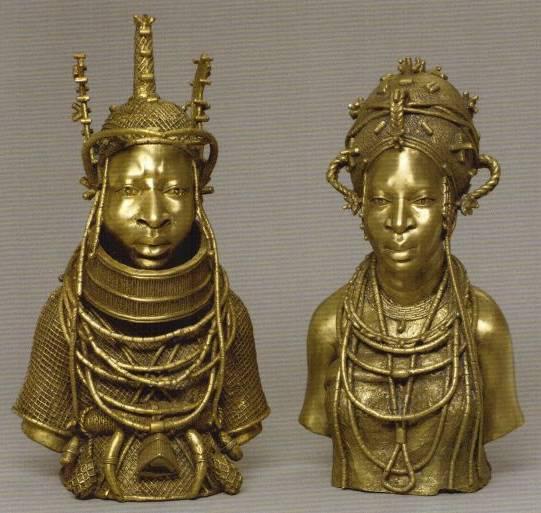How many (and which ones) of African civilizations fulfilled all - or the majority - of these criteria:
1) They have the knowledge of building in brick or stone, if the necessary materials are available in their territory.
2) At least few percent of them are urban population who live in towns or/and walled cities.
3) They exchange property by the use of money. There is long-distance trading, sale of goods and services.
4) They have a system of laws, accused ones can defend themselves and bring witnesses, punishments are proportional ("eye for an eye").
5) Their religious system includes also ethical and moral elements, it is not just purely or grossly superstitious.
6) They use a script to communicate ideas, they keep records and use things like counting boards, etc.
7) There is some facility in the abstract use of numbers (at least a start has been made in mathematics).
8) They use the scale, sundial clock, measures of length, a calendar accurate to within a few days in a year.
9) There is some appreciation of the fine arts and they build some monumental structures.
10) At least some part of the young population is enrolled in some sort of education.
11) There is some order and planning in their towns or cities. They use water storage, sewage system, etc.
12) They use irrigation or paddy fields. They use drainage. They use some crop rotation.
13) They know most or many of these materials: leather, glass, iron, copper, silver, zinc, lead, boron, tin, mercury, bronze, papyrus, pottery, linen, silk, cotton. They know technologies such as: the loom, knitting, smelting, metal casting, quarrying, mining.
14) They practice some sort of recreation and sports: such as for example racing or board games.
15) Transportation: they know the sail, the anchor, pack animals, wheeled vehicles or sledges.
16) Transport infrastructure: they know how to build roads, bridges, canals, tunnels, harbors.
17) Basic medicine: they use opiates, herbal pharmaceuticals, basic surgery, medical training.
18) Governance: there is separation of secular from religious leadership, there is separation of military and civil powers, some complex administrative systems, some hierarchical structures, they the knowledge of mapping (nbasic cartography).
19) Non-agricultural production: there is some specialization of labor and some cottage industries.
20) They have some sciences like Astronomy and Philosophy, etc. They have some Literature.










